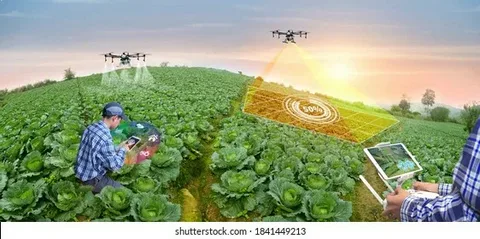Precision agriculture is revolutionizing the way farmers approach crop production by leveraging technology to optimize resource use and increase efficiency. This innovative farming method focuses on precise monitoring and management of field variability, leading to significant reductions in waste and improvements in crop yield. In this article, we explore how precision agriculture helps in reducing waste and maximizing crop output, transforming traditional farming into a smart and sustainable practice.
What is Precision Agriculture?
Precision agriculture involves using advanced technologies such as GPS, remote sensing, drones, soil sensors, and data analytics to gather detailed information about crop conditions and soil health. This data-driven approach enables farmers to apply water, fertilizers, and pesticides more efficiently and only where needed, rather than uniformly across entire fields.
Reducing Waste through Targeted Resource Management
One of the primary benefits of precision agriculture is its ability to reduce waste. Traditional farming methods often lead to over-application of inputs like water and fertilizers, which not only increases costs but also harms the environment through runoff and pollution. By using precision agriculture techniques, farmers can:
- Apply fertilizers based on soil nutrient levels detected by sensors.
- Irrigate crops precisely according to moisture requirements.
- Target pesticide use to affected areas, minimizing chemical use.
This targeted resource management helps conserve valuable inputs, reducing both environmental impact and operational expenses.
Maximizing Crop Output with Data-Driven Decisions
Precision agriculture also plays a crucial role in maximizing crop output. By analyzing data collected from the fields, farmers gain insights into crop health, growth patterns, and potential stress factors such as pests or diseases. These insights allow for:
- Timely interventions to address issues before they affect yield.
- Selection of crop varieties best suited to specific soil and climate conditions.
- Optimized planting density and spacing for maximum productivity.
Such informed decisions lead to healthier crops and higher yields, ensuring that farmers get the most out of their land.
The Future of Farming: Sustainable and Profitable
In summary, precision agriculture is a game-changer in modern farming. By reducing waste and maximizing crop output, this approach not only enhances profitability for farmers but also promotes sustainability by minimizing environmental impact. As technology continues to advance, precision agriculture will become increasingly accessible, helping to meet the growing global demand for food in an efficient and responsible manner.



